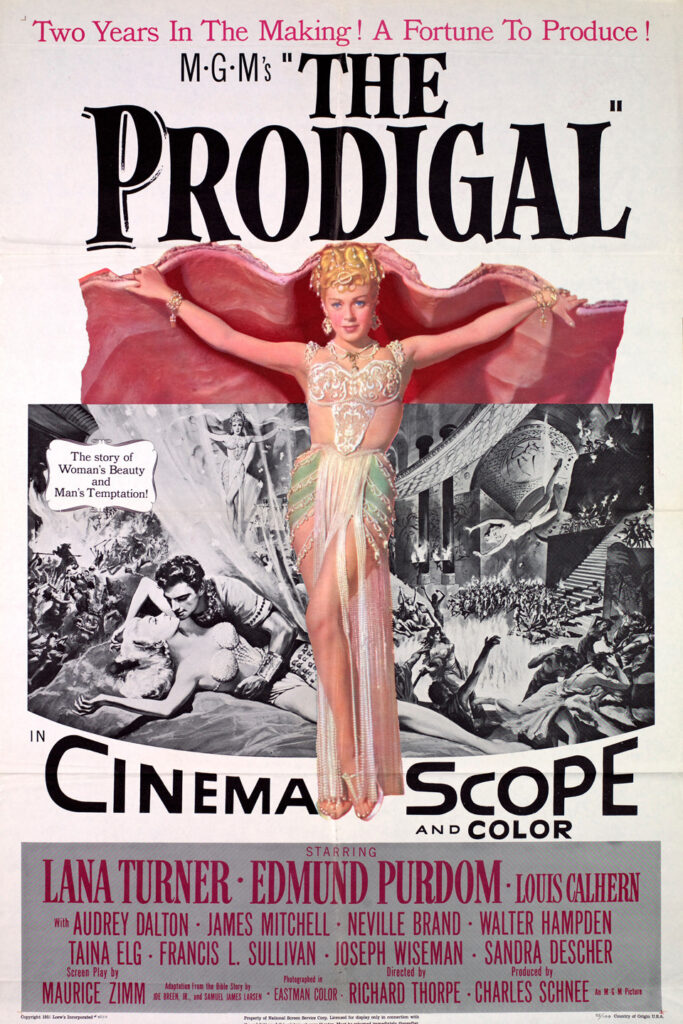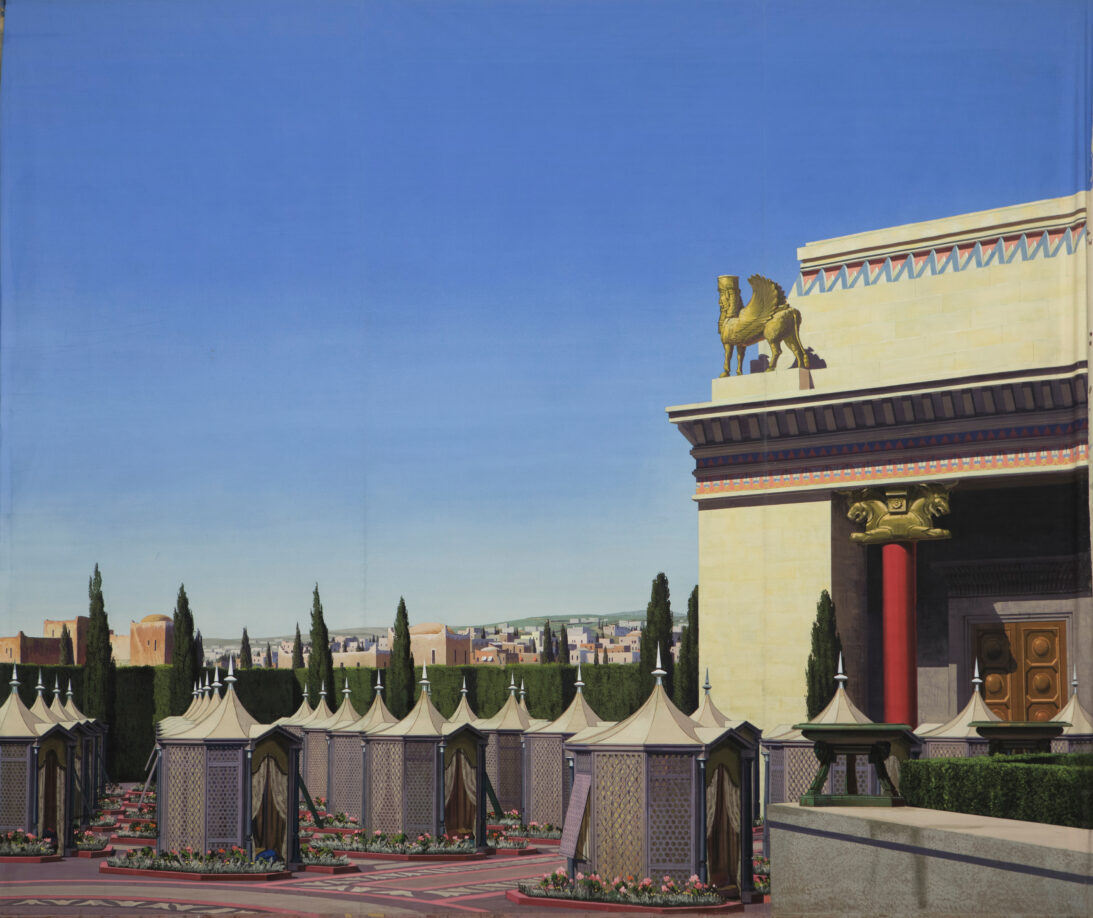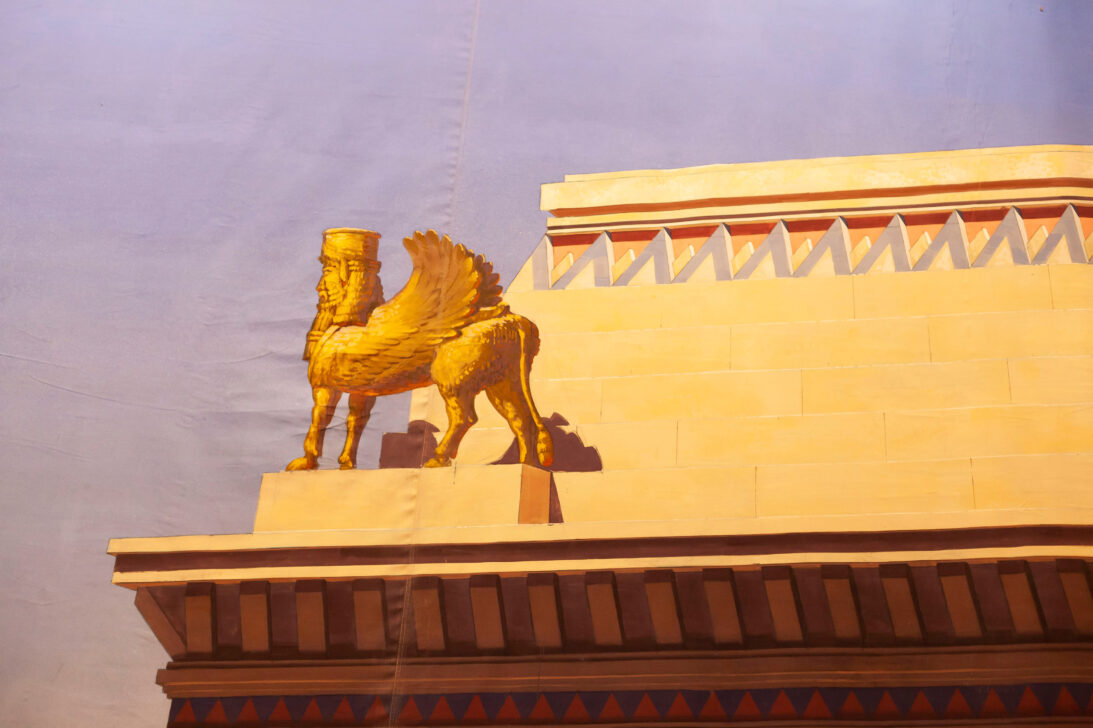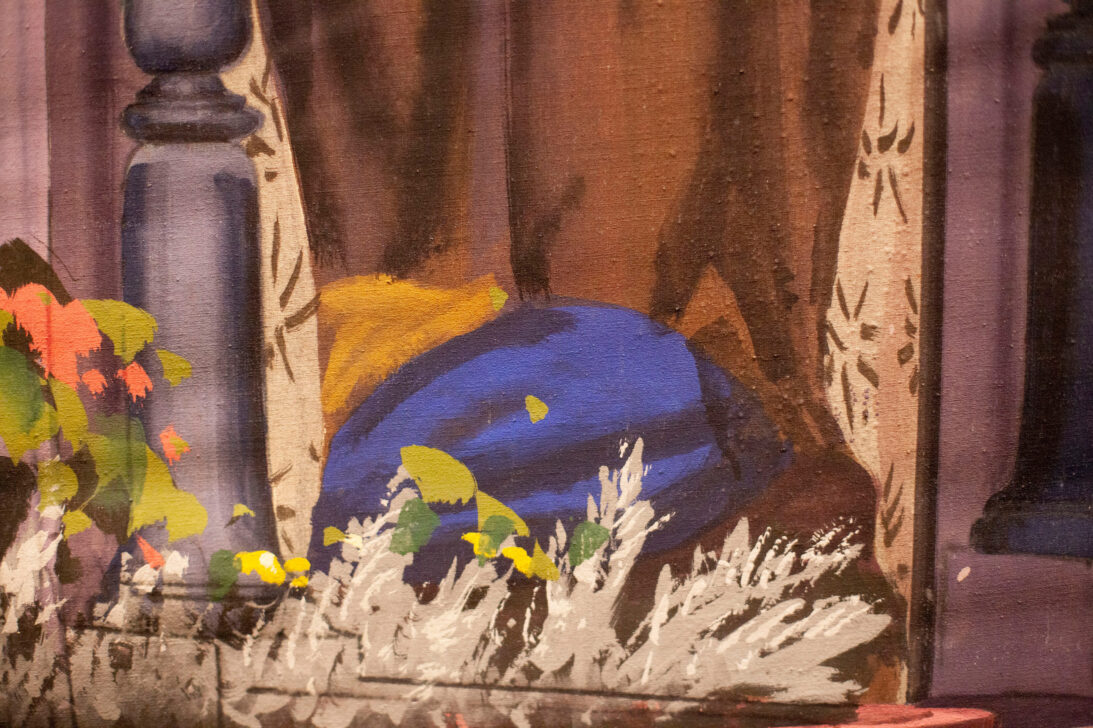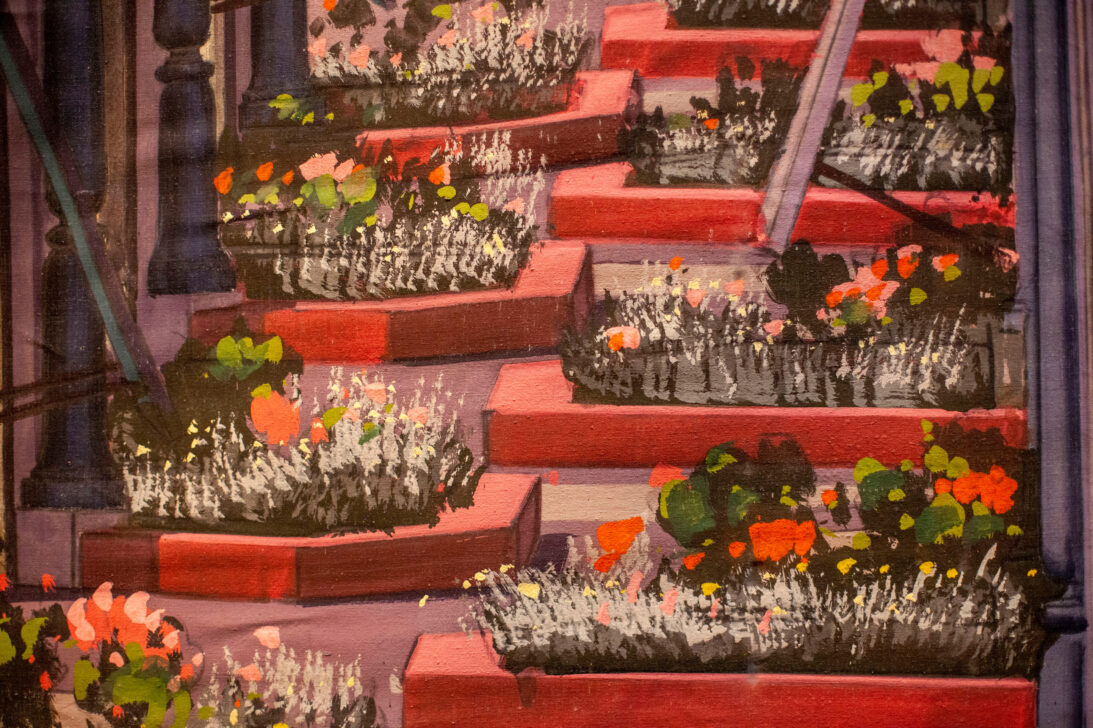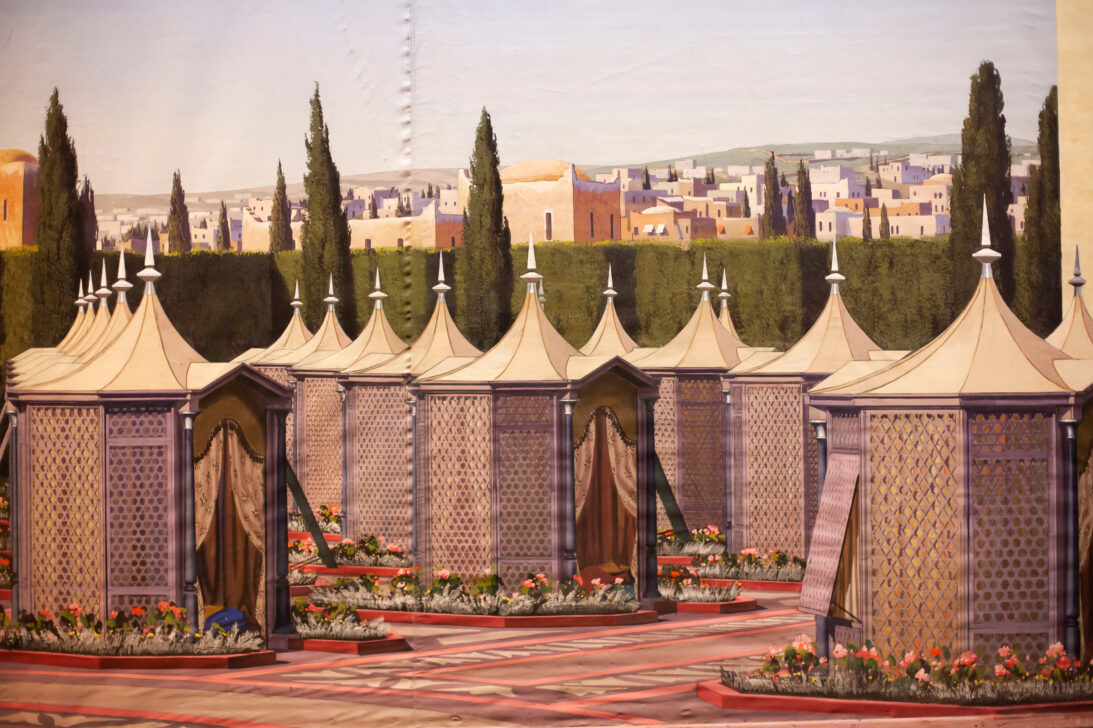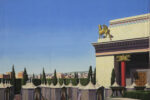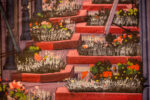The Prodigal Tents in the Gardens of Pleasure
Exterior temple courtyard and tents in the Gardens of Pleasure of Damascus in 70 B.C. Day/Night. Designed to be lit from behind with the appearing to be illuminated from within. The areas designated to fall into shadow are painted out with dark gray paint on the backside of the backdrop. This "back-painting" technique blocks light from behind, enabling time-of-day changes.
Unique for their high chromatic saturation, these backdrops shaped MGM’s settings for the biblical parable of the Prodigal’s Son reimagined as a large-scale cinematic spectacle. Painted to be filmed in Technicolor, these backdrops demonstrate the rich, intense capacity of using dry color pigments. Eventually, scenic paint formulations would change to acrylic-based paints, reducing the scenic artist’s range of darkness and color intensity.
